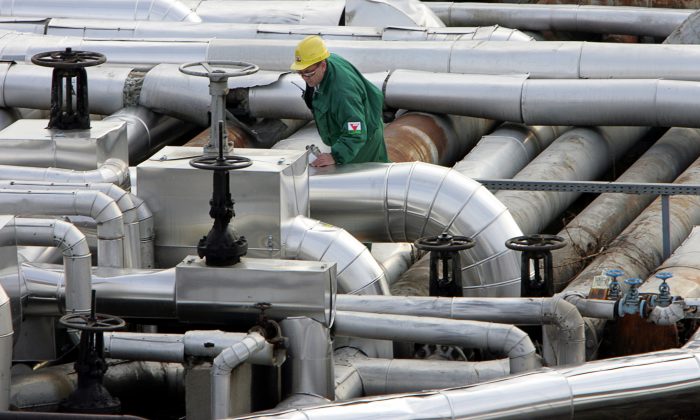Flow of Oil to Czech Republic Restarts Via Russia’s Druzhba Pipeline Following Unexpected Shutdown
Officials have not stated what caused the temporary outage earlier this week.
Russian oil supplies to the Czech Republic are once again running through the Druzhba pipeline following a temporary outage earlier this week, the state Mero company that owns and operates the pipeline network in the country said on Friday.
Deliveries via the pipeline were resumed in the morning, the company confirmed in a short statement posted on its official website.
Mariusz Wnuk, director of Czech refiner Orlen Unipetrol, also confirmed in a on X that deliveries via the pipeline had resumed on Friday morning while praising what he said was a swift response to the sudden outage.
Neither Mero nor Wnuk provided further details on why oil deliveries through the line were halted.
The pipeline, which first began operating in 1964, carries oil from Russia to countries including Belarus, the Czech Republic, Germany, Hungary, Poland, Slovakia, and Ukraine.
It has a current capacity of 1.2 million to 1.4 million barrels per day, with a possibility of increasing to up to 2 million barrels per day, according to IAOT.
In a statement shortly after the outage, Mero said it was aware of “complications” regarding the crude oil supply to the Czech Republic and was monitoring the situation.
The company said there was no threat to the crude oil supply to the nation, which it said has 90 days of oil reserves that could be used in cases of short-term supply disruption.
Mero also noted that oil supplies via the Transalpine Pipeline (TAL) that connects Italy, Austria, and Germany, and the Ingolstadt–Kralupy–Litvínov (IKL) pipeline in Central Europe, were running as usual.
In an update on Thursday, the oil company said it was working on the “technological preparation” of tanks at the Central Crude Oil Tank Farm—used to store strategic emergency oil reserves—so that they could be released if necessary to Orlen Unipetrol, which operates the country’s Litvinov refinery.
Those reserves, however, were ultimately left untapped.
Currently, the Czech Republic, Hungary, and Slovakia are the only European Union member states receiving oil from Russia after they were granted exemptions from EU sanctions against the country after its invasion of neighboring Ukraine.
The three nations received the waivers due to a lack of other supply sources.
The country has invested some 1.6 billion Czech koruna or crowns ($67 million) to double the capacity of the TAL pipeline to 8 million metric tons a year, which would cover the country’s needs.
That project is expected to be operational in early 2025.
“In the context of the current situation and steps that Czechia is taking to secure independence from imports of oil from Russia, the Czech Republic does not see a reason why the exemption should be extended,” the ministry said.
The Associated Press and Reuters contributed to this report.





